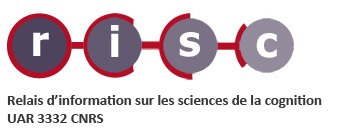Exploration of temporal prediction associated with motor activity in neurotypical and neuroatypical individuals
Exploration de la prédiction temporelle associée à la motricité chez les individus neurotypiques et neuro-atypiques
Résumé
The aim of this thesis was to explore the impact of temporal prediction on movement planning and execution. We used motor tasks in which participants stopped an index finger movement in response to a predictable target signal and examined how this prediction influenced both movement preparation and stopping execution. In neurotypical individuals, our findings revealed multiple temporal prediction mechanisms operating simultaneously: one linked to motor commands affecting preparation, a sensorimotor prediction influencing execution, and an independent prediction reflecting cognitive anticipation. Sensorimotor temporal prediction evolves with development and appears to be impaired in individuals at high genetic risk of psychotic conversion. In people with schizophrenia, preliminary findings suggest that performing a movement may help restore temporal prediction abilities. This thesis provides insights into how temporal predictions are integrated into motor programs and raises questions about the mechanisms underlying sensorimotor integration.
L’objectif de la thèse était d’explorer l’impact de la prédiction temporelle sur la planification et l’exécution de mouvements. Nous avons utilisé des tâches où les participants arrêtaient un mouvement de l’index en réponse à un signal prédictible et étudié comment cette prédiction influençait la préparation et l'exécution de l'arrêt. Chez les neurotypiques, nos résultats ont révélé plusieurs prédictions temporelles opérant simultanément : une prédiction liée à la commande motrice influençant la préparation, une prédiction sensorimotrice affectant l'exécution et une prédiction indépendante de la commande motrice reflétant une attente cognitive. La prédiction temporelle sensorimotrice évolue avec le développement et semble altérée chez les individus à haut risque génétique de conversion psychotique. Chez les individus atteints de schizophrénie, des résultats préliminaires suggèrent que la réalisation d’un mouvement pourrait rétablir les capacités de prédiction temporelle. Cette thèse apporte des connaissances sur l’intégration des prédictions temporelles au programme moteur et questionne les mécanismes de l’intégration sensorimotrice.
| Origine | Version validée par le jury (STAR) |
|---|
